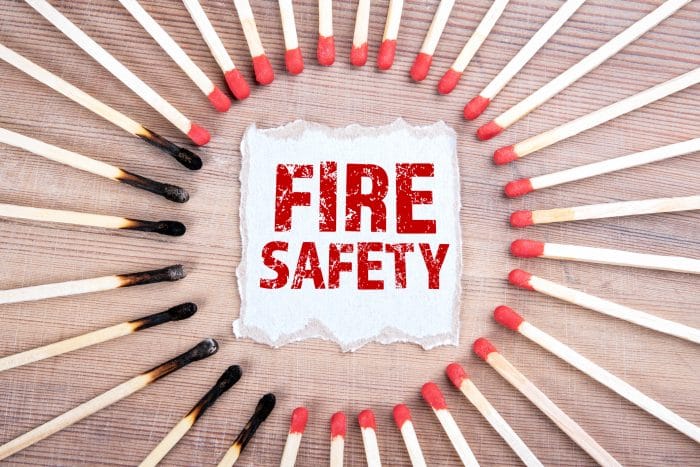It’s time for a fire safety in February recap!
As we come to the end of the month, we must look at all of our resources that help us better understand fire safety. This means educating ourselves about how a home fire sprinkler system keeps your community safe, the importance of a kitchen fire suppression system, and what’s considered a fire hazard.
Read further for more details.
Home Fire Sprinkler System: How It Keeps Your Community Safe
It’s not that common to see a sprinkler system in a non-commercial setting. As a homeowner, you may be worried about installing them in your home, for several reasons. However, the stats show that they’re incredibly important in the home. Over eighty percent of fire deaths are in the home, and that translates to over 3000 people dying in house fires in the US every year. A good home fire sprinkler system can do more than you think to keep you and your home safe.
First, let’s look at why sprinklers aren’t often used in home construction. The first myth that people often believe is that misfiring sprinkler heads is common. This is something you often see on TV, where a sprinkler goes off at the wrong time and ruins everything in the vicinity.
This isn’t true, and a misfiring sprinkler head is incredibly rare. The only time a sprinkler should go off is when it detects high temperatures that indicate a fire. If you have sprinklers, you don’t have to worry about a misfire causing you problems.
The Importance Of A Kitchen Fire Suppression System
Kitchens are the source of many fires, both in commercial and residential buildings. Of course they would be when there are so many heat sources that can cause ablaze. That’s why a kitchen fire suppression system is so important. Which type is right for you, and how are they used?
When thinking about kitchen fire suppression systems, you’ll usually think about them being used in commercial kitchens. That is a great place for them to be installed, but that’s not the only place they’re useful. They are perfect for any area where there may be many cooking appliances. For example, you can have them installed in student housing, hostels, apartment buildings, and more.
When the system is installed, it works best in an extractor fan hood above the stove, or in cabinets that are next to the area. The closer they are to the likely source of a fire, the better they will work.
They work well in these situations as you can rely on the suppression system to put out a fire, rather than the person staying in that space. They may understandably panic if a fire breaks out, maybe asleep, or not in the room at all. The system will handle it so the damage is minimal.
What’s Considered A Fire Hazard? This List May Surprise You!
You think that you’ve made your home safe from fire, but it’s amazing just how many hidden dangers are considered a fire hazard. In most cases, a lack of maintenance or oversight can lead to a fire breaking out in seconds.
Now, you can’t stop every fire in its tracks, and it’s always a good idea to have a fire escape plan. However, if you want to reduce the risk of fire, check out this list of fire risks that you didn’t even know could happen in your home. For example, a dirty stove.
Yes, a dirty stove may lead to a fire in your kitchen as you cook. Even if you give the stove a quick wipe over to keep it clean, that may not be enough to keep it clean enough. Grease and burned-on food can get into all the cracks and crevices, especially around the burners. It’s a good idea to regularly take all the parts off and clean them, using a toothbrush to get into all the crevices that you can’t reach with a sponge alone. This will remove all the flammable items that could cause problems for you.
Final Thought
It can be tiresome to find the most factual and effective information about fire safety matters. But what we’ve gathered here is a great start to guide you in the right direction. Connect with a fire safety consultant for further assistance.

